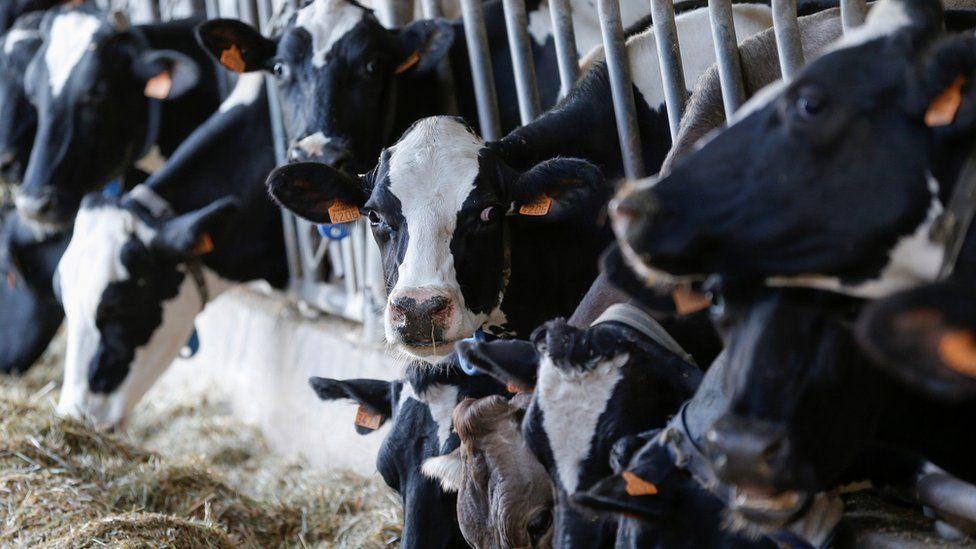Badger cull: Chance in a lifetime has been missed, farmer says
- Published
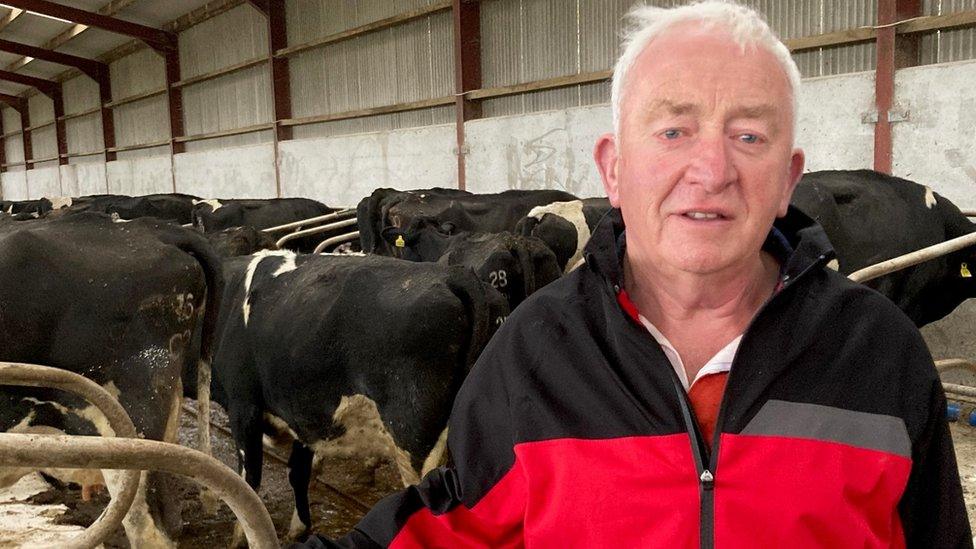
John Carson believes badgers play a role in the transmission of bovine tuberculosis
"A chance in a lifetime" has been missed after a decision by the Department of Agriculture, Environment and Rural Affairs (Daera) for a badger cull was quashed in court.
That's the view of John Carson who knows all too well the impact of bovine tuberculosis (bTB).
He estimates that there have been outbreaks on his County Down farm in 15 of the past 20 years.
"Where we go from here, I just don't know," he told BBC News NI.
Like many farmers, Mr Carson believes badgers play a role in transmission of the disease and news of the proposed cull being quashed came as a blow.
"I don't like the idea of talking about a cull," he added.
"I like talking about trying to reduce disease levels.
"I can say we've been culling cows for the last 50 years.
"We want to reduce the level of disease within the wildlife as well as the cow."
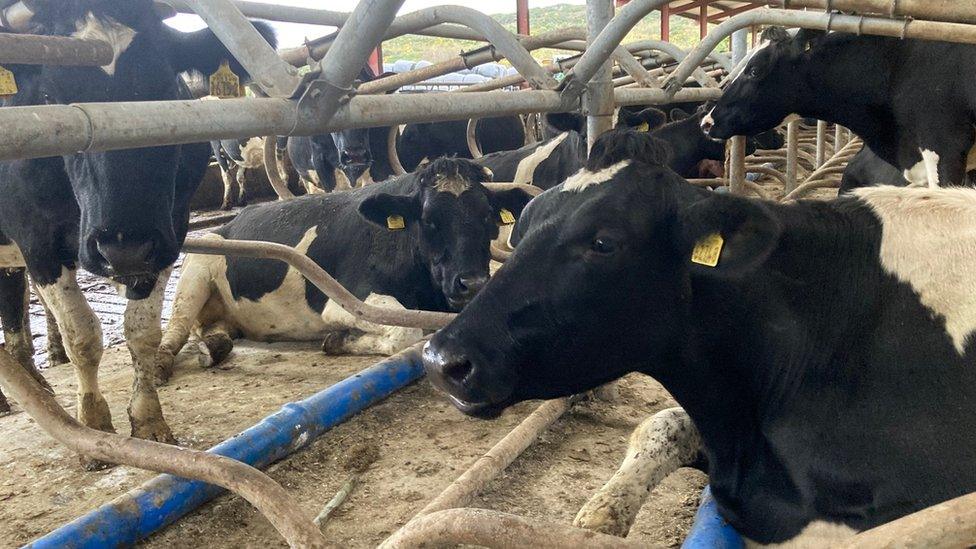
Almost 9,000 cattle have been slaughtered this year after testing positive for bovine tuberculosis
Between the testing regime and compensating farmers for destroyed animals, the cost of dealing with the disease in Northern Ireland is expected to reach at least £50m in 2023.
Almost 9,000 cattle have been slaughtered in 2023 after testing positive., external
Mr Carson believes "this was a chance, I think in a lifetime" to have everyone from vets and departmental staff to farmers and industry representatives working together.
The proposal was quashed on the grounds that the consultation for it was flawed, which has angered him.
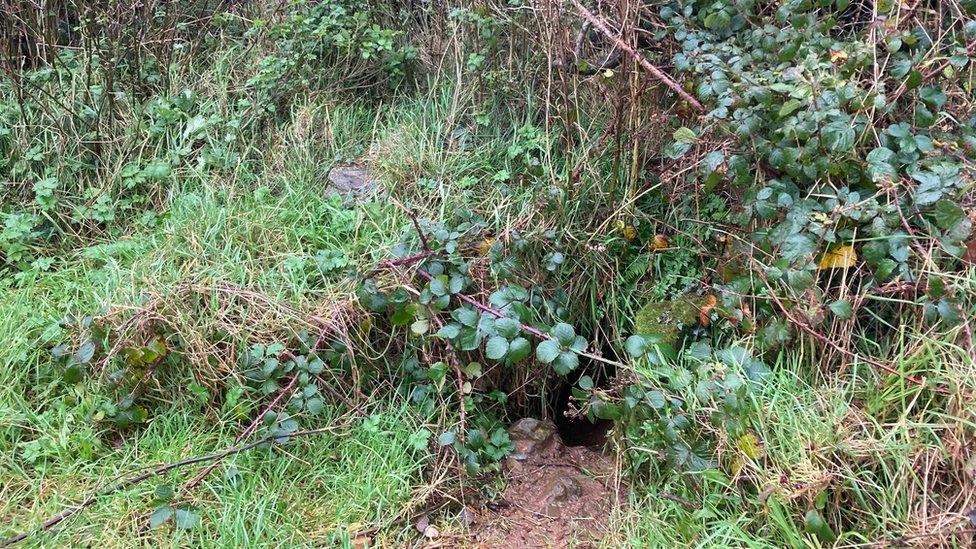
A badger set on John Carson's farm
"To think at the end that Daera couldn't get it right, that senior management couldn't get it right, to put a case forward on our behalf - I'm disappointed," he said.
A "contentious and divisive" cull has been carried out in parts of England and is coming to an end, with a move towards vaccinating badgers.
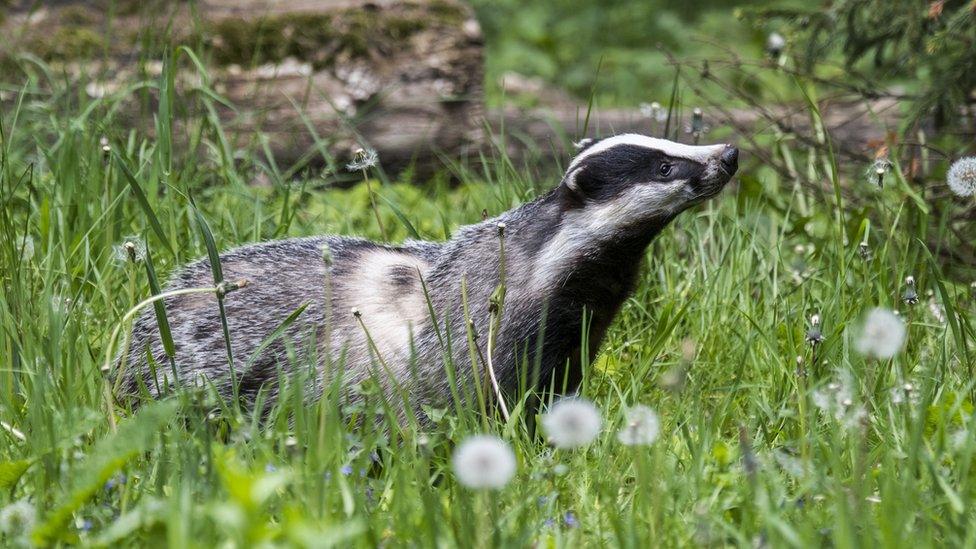
Badgers should be vaccinated and removed, the USPCA says
More than 200,000 badgers have been killed in the past 10 years, some say up to half the estimated population, external in GB.
Conservation groups say there has to be a better way.
"If they do pursue with a wildlife intervention, the only acceptable option on the table would be test, vaccinate and remove," USPCA chief executive Nora Smith said.
The group was not involved in the legal action.
"We feel that the focus on a wildlife intervention is an unnecessary distraction," she added.
"Take a wider and more objective approach to this and look to Wales (where cattle movement is the focus).
"And look at the innovation that's happening in Devon, where you've got a vet and a farmer working together and using a new testing regime as well.
"So there's lots of innovation, but we just seem to have this entrenched view at the minute."
The results of a five-year Test, Vaccinate or Remove wildlife intervention study in County Down were analysed by scientists.
They concluded it showed "considerably more common" cattle-to-cattle transmission of the disease than badger-to-cattle.
Daera said it would "carefully" consider the court's decision and its next steps.
What's next for farmers?
The heartbreak of bTB is horrible for farmers, driving some out of cattle-farming altogether and taking others to the brink.
But for those in conservation, the prospect of killing potentially healthy badgers by shooting them is unthinkable.
Perhaps a Test and Vaccinate or Remove programme is the most likely outcome in the long-term, but farmers say culling is needed in the interim to get the disease to controllable levels.
Everyone is waiting to see what Daera's next move will be, but it's unlikely this is the last time this issue will be before the court in Northern Ireland.
Related topics
- Published25 October 2023
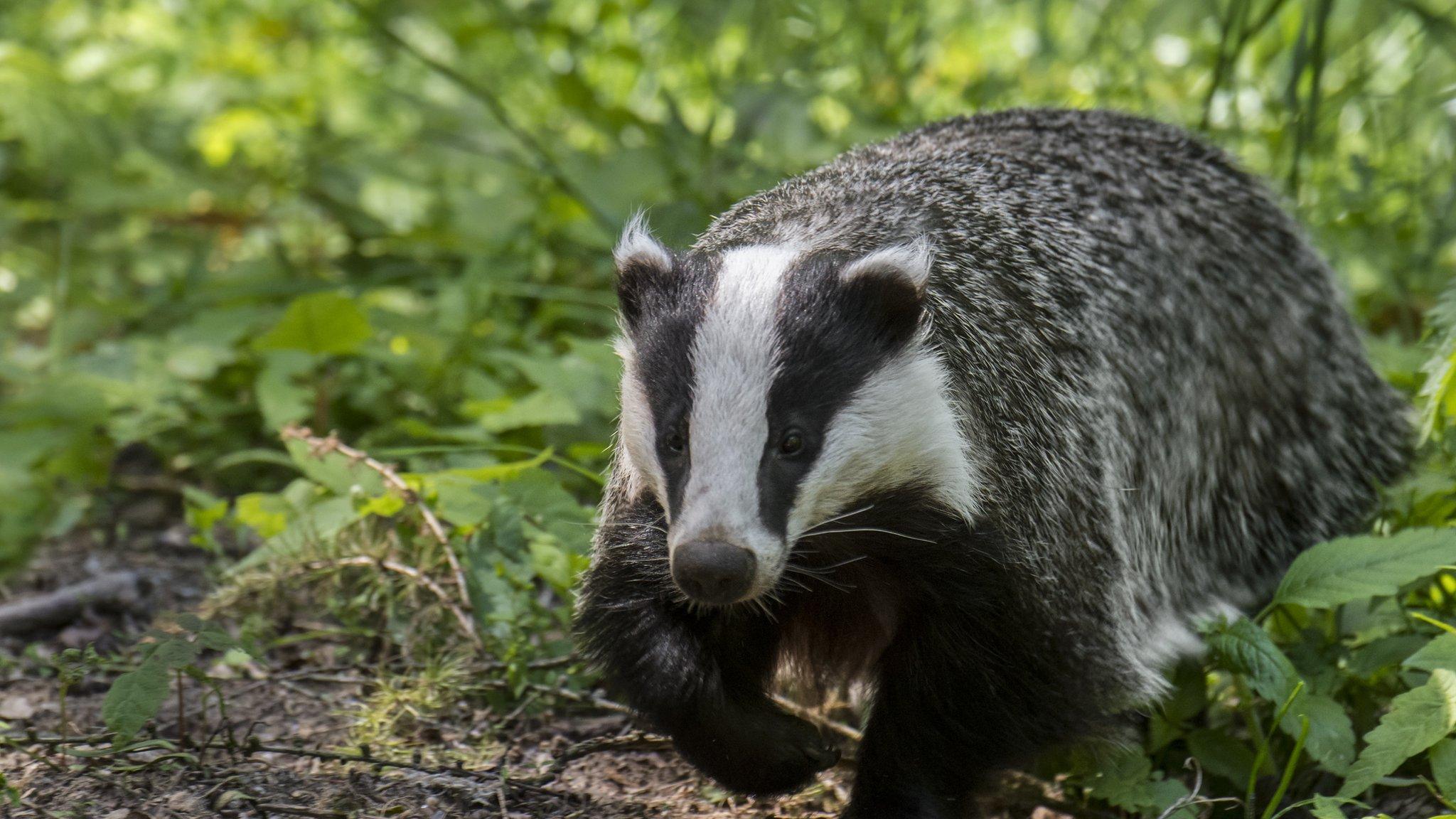
- Published4 July 2023
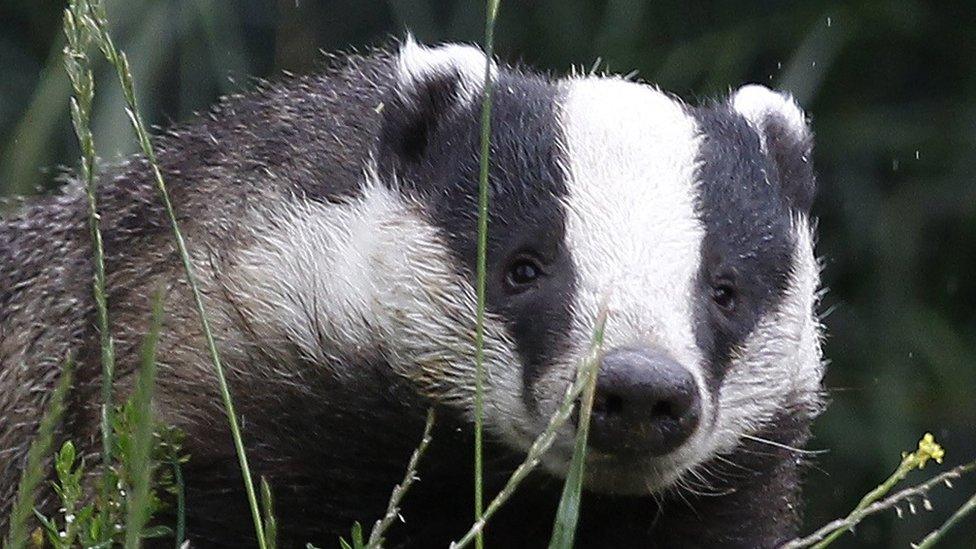
- Published31 May 2023
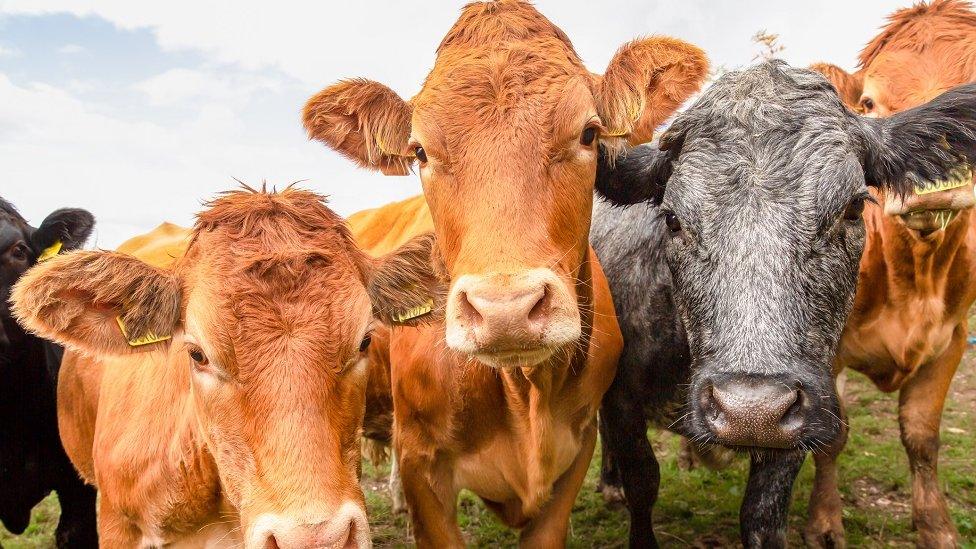
- Published4 September 2023
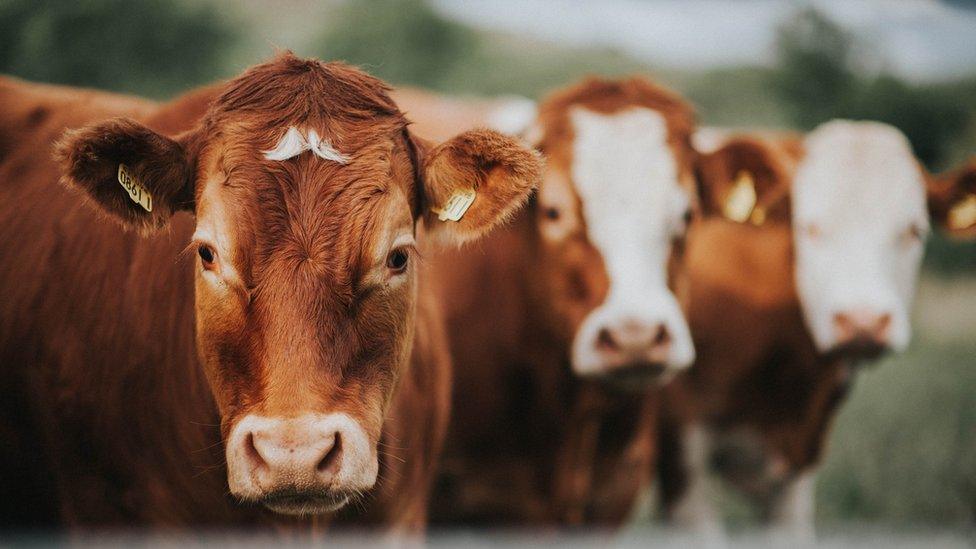
- Published27 July 2022
